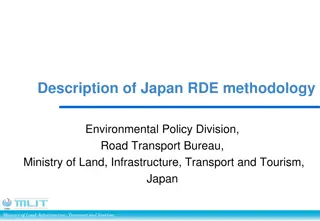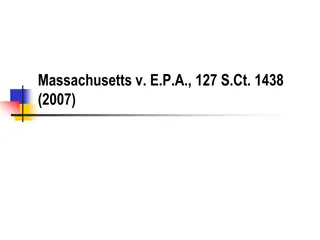
The Future of Work: Challenges and Opportunities in the Digital Era
Explore the evolving landscape of work in the digital age, addressing topics such as the 4th Industrial Revolution, automation risks, job market dynamics, skills gaps, policy options, and the need for a paradigm shift in workforce strategies.
Download Presentation

Please find below an Image/Link to download the presentation.
The content on the website is provided AS IS for your information and personal use only. It may not be sold, licensed, or shared on other websites without obtaining consent from the author. If you encounter any issues during the download, it is possible that the publisher has removed the file from their server.
You are allowed to download the files provided on this website for personal or commercial use, subject to the condition that they are used lawfully. All files are the property of their respective owners.
The content on the website is provided AS IS for your information and personal use only. It may not be sold, licensed, or shared on other websites without obtaining consent from the author.
E N D
Presentation Transcript
THE FUTURE OF WORK Yumiko Murakami Head, OECD Tokyo Centre 14 Nov, 2018 High level Conference Part I: "EU-Japan EPA additional opportunities for trade, investment and cooperation"
The 4th Industrial Revolution is well underway
The adoption of new technology is not inevitable
The risk of automation may be exaggerated (though many jobs will change)
Most countries have seen increases in employment rates
History suggests new jobs will emerge too, complementary to digital technologies Source: Wall Street Journal, Workers, fear not the Apocalypse , 5 September 2017
The slowdown in wage growth was widely spread
Jobs created are not the same as those disappearing: labour markets are polarising
Many workers do not have the right skills for the new jobs
The risk of automation is highest for lowskilled low-paid workers
Some policy options Retention and advancement schemes E.g. Germany Individual learning accounts E.g. Compte Personnel de Formation in France Lifelong guidance E.g. career guidance voucher in Flanders (Belgium) Training targeted at new forms of work E.g. Bridge to Employment in San Francisco
The kind of things that are easy to teach are now easy to automate, digitize or outsource Mean task input in percentiles of 1960 task 70 65 Routine manual 60 Nonroutine manual 55 Routine cognitive Nonroutine analytic 50 Nonroutine interpersonal 45 40 35 1960 1970 1980 1990 2000 2006 2009
Accelerating pace of technological change creates need for skills development across the life course Move to a new model for skills development
Open/Distance Learners are Young, Highly Skilled and Educated
Problem Solving Skills Improve with Prolonged Digital Exposure AVERAGE SCORE IN PROBLEM SOLVING IN TECHNOLOGY-RICH ENVIRONMENTS OF WORKERS IN DIGITAL AND NON-DIGITAL ENVIRONMENTS Source: Survey of Adult Skills (2012, 2015)
The Uneven Reality of Lifelong Learning (Open/Distance Education) SHARE OF POPULATION HAVING PARTICIPATED IN OPEN/DISTANCE EDUCATION IN LAST 12 MONTHS PRIOR TO SURVEY, BY AGE GROUP Source: Survey of Adult Skills (2012, 2015)
Open Education Mainly Used by Those in Formal Education in the Labour Market SHARE OF STUDENTS HAVING PARTICIPATED IN OPEN/DISTANCE EDUCATION IN LAST 12 MONTHS PRIOR TO SURVEY, BY EMPLOYMENT STATUS Source: Survey of Adult Skills (2012, 2015)
Opportunities and policies to foster jobs in the digital economy Opportunities: New and potentially better paid jobs Fewer dangerous jobs, more flexibility Policies: Requires a well-functioning labour market to facilitate redeployment and mobility Formal and informal learning mechanisms to ensure workers have the right mix of skills, with new forms of education and adult learning Co-ordination among education and training institutions, employers and social partners social dialogue will help Provide social and employment protection, especially for non- standard, irregular workers Adaptation build confidence in society s ability to change and people to benefit






















